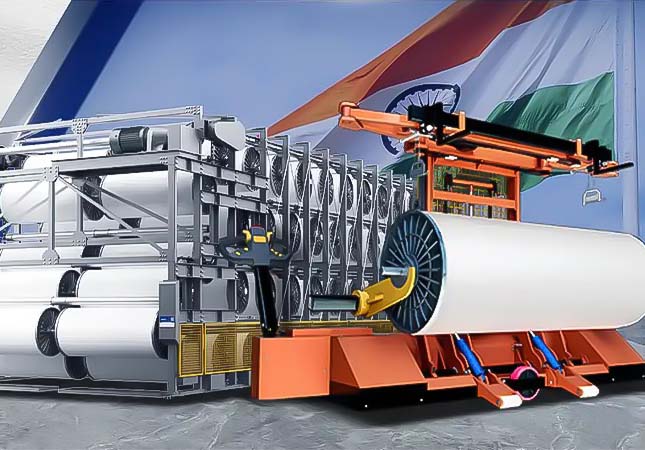The textile, textile products, and apparel manufacturing industry include enterprises that process fibers into fabrics and further process fabrics into clothing and other textile products. Companies in the textile industry produce various goods, some of which are sold to consumers, while others are sold as inputs for the production of other products. Natural and synthetic fibers are used in the production of yarn and threads, which can be woven, knitted, pressed, or otherwise bonded into fabrics, as well as ropes, cords, and twines. Coatings and finishing agents are applied to fabrics to enhance decorative patterns or make the fabrics more durable, stain-resistant, or impart other characteristics.

Fabrics are used in the manufacturing of many products, including awnings, tents, carpets, and rugs, as well as various linen items such as curtains, tablecloths, towels, and bed sheets. However, the primary use of fabrics is in the production of clothing. Institutions in the apparel manufacturing industry produce a wide range of knitwear products such as socks, shirts, sweaters, and underwear. They also manufacture many woven garments, such as dresses, suits, shirts, and trousers.
The textile industry mainly encompasses three distinct sectors - textile mills, textile product mills, and apparel manufacturing.
1. Textile Mills
Textile mills provide the raw materials for producing clothing and textile products. They use natural and synthetic materials such as cotton and polyester, transforming them into fibers, yarns, and threads. Yarn is prepared in the form of fiber bundles ready to be woven, knitted, or otherwise interlaced to form textile fabrics. Yarns form the foundation of most textile production and are typically made from cotton, wool, or synthetic fibers like polyester. Yarns can also be produced from strips of plastic, paper, or metal. To create short fiber yarns, natural fibers like cotton and wool must first undergo processing to remove impurities and impart the desired texture, durability, and other characteristics to the product. After this initial cleaning stage, the fibers are spun into yarn.
Then the textile factory continues to produce fabrics through machine weaving and knitting. The workers in the weaving mill use complex automated looms to turn yarn into cloth. The looms weave or intertwine two threads at right angles to each other, forming the fabric. The knitting factory uses automated machines to produce interlocking loop fabrics from one or multiple types of yarn.
At any point in the production process, the fabric may undergo some processes called finishing. These processes, including dyeing, bleaching, and stone washing, among others, can be carried out by the textile factory itself or by separate finishing plants. Finishing involves chemical or mechanical treatments of fibers, yarns, or fabrics to enhance their appearance, texture, or performance.
2. Textile Product Factory
The textile product factory transforms raw textile materials into finished products other than clothing. Some of the products produced by this department include household items such as carpets and rugs, towels, curtains and bed sheets, ropes and twines, furniture and automotive interiors, as well as industrial belts and fire hoses. As the process of converting raw fibers into textile products is complex, most textile factories specialize in this area.
3. Apparel Manufacturing
The textile manufacturers in apparel manufacturing transition into the clothing and accessories industry. The apparel industry has traditionally been composed of production workers performing cutting and sewing functions on assembly lines. Despite advancements in technology and workplace practices, the industry remains labor-intensive. Increasingly, the industry outsources production work to suppliers in countries with lower labor costs.
In various stages of the textile process, post-finishing and warehouse handling require manual management and operation due to the high demands for quality, speed, and efficiency. These processes are the most labor-intensive and incur the highest labor costs. Particularly, warehouse handling and management require a large workforce. SUNTECH Motorized Beam Trolley assist the workers in achieving fast and intelligent handling, reducing the number of handling times and physical exertion, thus saving labor and costs, significantly improving production efficiency, and solving the most challenging warehouse handling issues.




